I remember sitting in a yard full of equipment, staring at a quote for two new trucks, then someone asked, “Why not just get trailers?”
That question triggered weeks of back-and-forth research, supplier calls, and internal debates.
That experience taught me that the truck vs. trailer decision isn’t just about the vehicle; it’s about your operation.
This guide is written with that same real-world mindset. It’s built on industry insights, field-tested comparisons, and input from professionals across logistics, construction, and heavy industry.
In this article, you’ll get a clear breakdown of what trucks and trailers actually offer, cost, flexibility, regulations, and use cases, so you can make the best call for your business.
Let’s break it down!
1. What is a Truck?
I still remember the first time I stepped into the cab of a heavy-duty truck. It wasn’t mine, I was shadowing a logistics manager on a site visit. The sheer power, the independence of that machine, how it could roll off and get moving without waiting for anything else, it stuck with me.
A truck is a self-contained, self-propelled vehicle. It comes with the engine, cab, and cargo space all in one unit.
You don’t need to pair it with anything to get it moving. Just load it, start it, and it’s off. That autonomy is what makes trucks so valuable in certain operations.
Application
- Short-Haul Transport: Quick, frequent trips? Trucks make sense. No extra connections, no downtime.
- Urban Deliveries: In tight city spaces where maneuverability matters, trucks navigate better than truck-trailer combos.
- Construction Site Mobility: When you need something that can move on and off uneven terrain fast, a truck gets in and out without a problem.
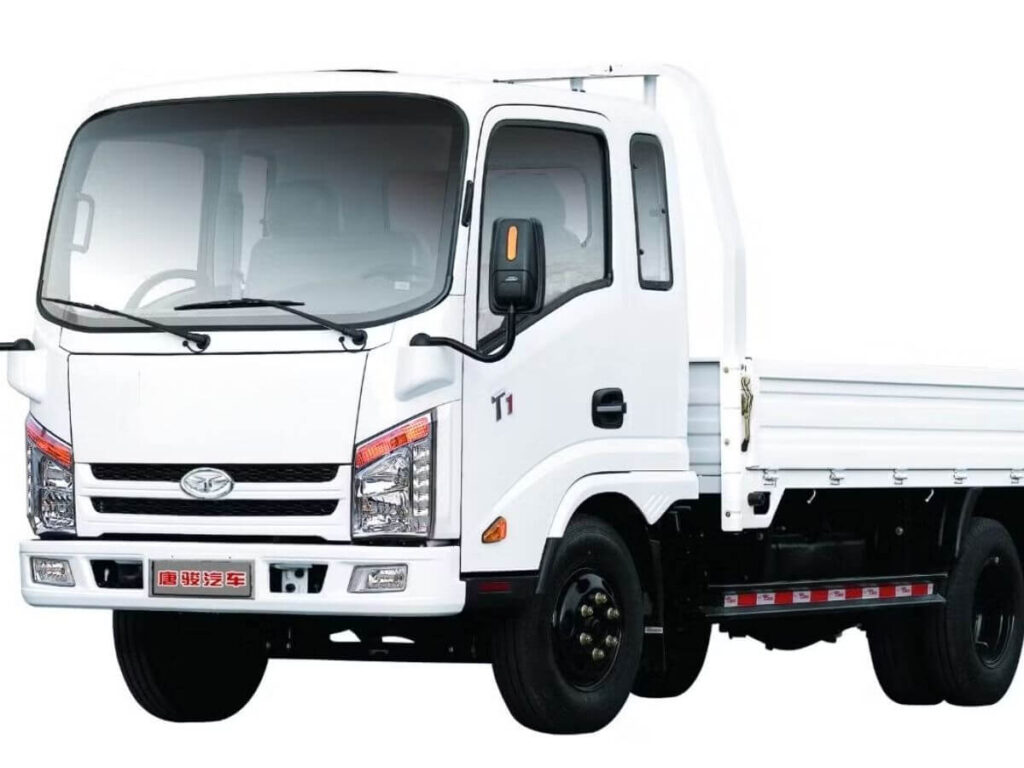
2. What is a Trailer?
I learned the value of a trailer the hard way on a tight deadline, with a broken truck, and a load that still needed to move. Luckily, we had an extra tractor unit on standby. All we had to do was hitch it up to the trailer and keep going.
No delays. No rescheduling. Just problem solved.
A trailer is a non-motorized cargo unit designed to be towed by a powered vehicle, usually a truck or tractor. It can’t move on its own, but that’s actually what gives it its flexibility and scalability.
You’re not tied to a single truck. Swap it, store it, move it however your operation demands.
Best Use For:
- Long-Haul Freight: For cross-country or multi-state logistics, trailers maximize capacity while reducing wear on your tractors.
- Heavy Equipment Transport: In mining or construction, Rhinotrail can provide trailers like lowboys or flatbeds that handle oversized loads that trucks simply can’t.
- Agricultural & Bulk Loads: Need to move grain, produce, or livestock? Specialized trailers are built for it, and built to last.
- Modular Fleet Operations: One truck. Multiple trailers. While one is being unloaded, the other’s already on the road.
Trailers give your operation options. They turn your fleet into a system, not just a collection of vehicles. And for companies scaling fast or hauling big, that makes all the difference.
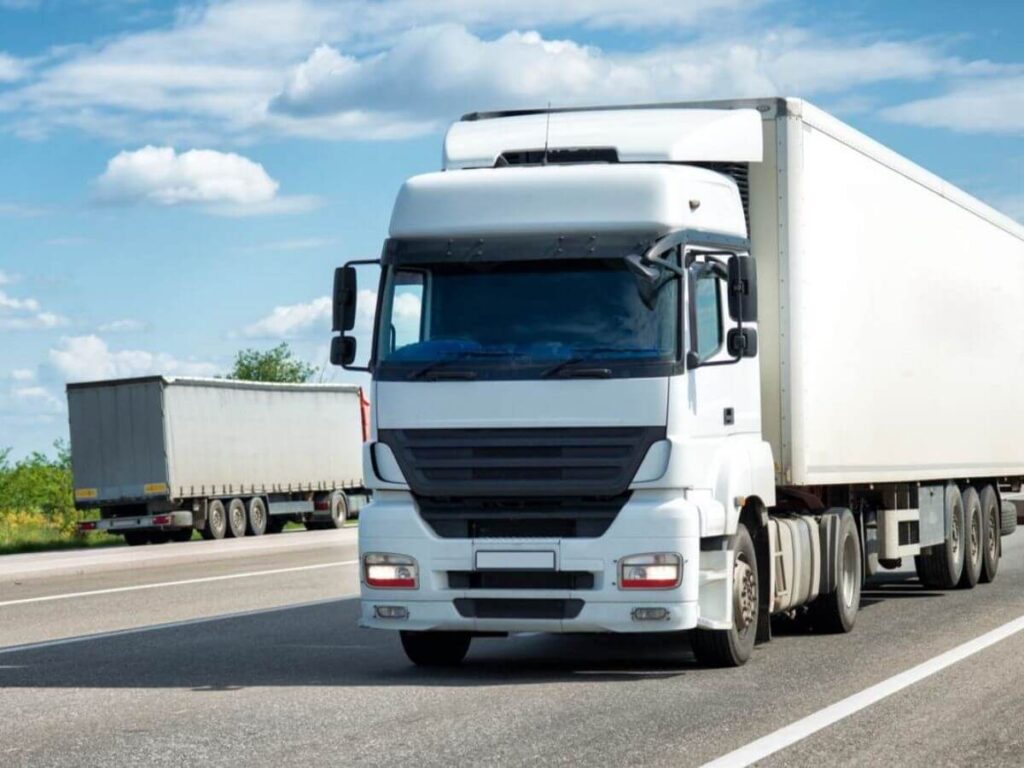
3. Cost Comparison
A few years back, I sat in a procurement meeting where two team leads nearly went head-to-head over this exact debate, “Trucks or trailers?” One was sold for the convenience of all-in-one trucks.
The other pushed hard for flexibility and lower costs of trailers. Both had a point, but the real answer came when we pulled up the numbers.
If you’re weighing this decision, don’t just look at sticker prices. You’ve got to think long-term. Let’s break it down:
| Category | Truck | Trailer |
| Purchase Cost | $120K–$180K+ | $30K–$70K |
| Maintenance Complexity | High (engine, electronics) | Low (brakes, tires, frame) |
| Fuel Efficiency | Lower | Higher (when towed) |
| Downtime Impact | Higher | Lower (swap with spare) |
| Resale Value | Moderate | Often Higher Over Time |
| TCO (Long-Term) | Higher | Lower |

4. Capacity and Usage Efficiency
I once worked with a construction firm that maxed out their box trucks hauling oversized equipment, until one day, a single delivery was delayed two days just because the truck couldn’t legally carry the weight. The solution? A modular trailer setup. They never looked back.
When it comes to payload and capacity, this is where the real difference shows up. It’s not just about how much you can carry, it’s about how smartly you carry it.
Configurations & Weight Limits
Payload isn’t just about space, it’s about legal weight distribution.
- Common Axle Configurations
- Single Axle: Light loads, limited weight capacity.
- Tandem Axle: Most common, balanced for medium to heavy-duty work.
- Tri-Axle or More: Built for heavy-haul, mining, or oversized applications.
- Regulations to Watch
- US DOT bridge formula (weight per axle & spacing)
- EU Axle Load Directives
- Local weight limits vary, always check per jurisdiction.
Ideal For
- Construction & Mining: Trailers win here. Lowboys, extendables, and detachable goosenecks make moving excavators, bulldozers, and aggregate easier and legal.
- Retail & Agriculture: If you’re dealing with boxed goods, produce, or store deliveries, box trucks are often more agile and better for last-mile distribution.
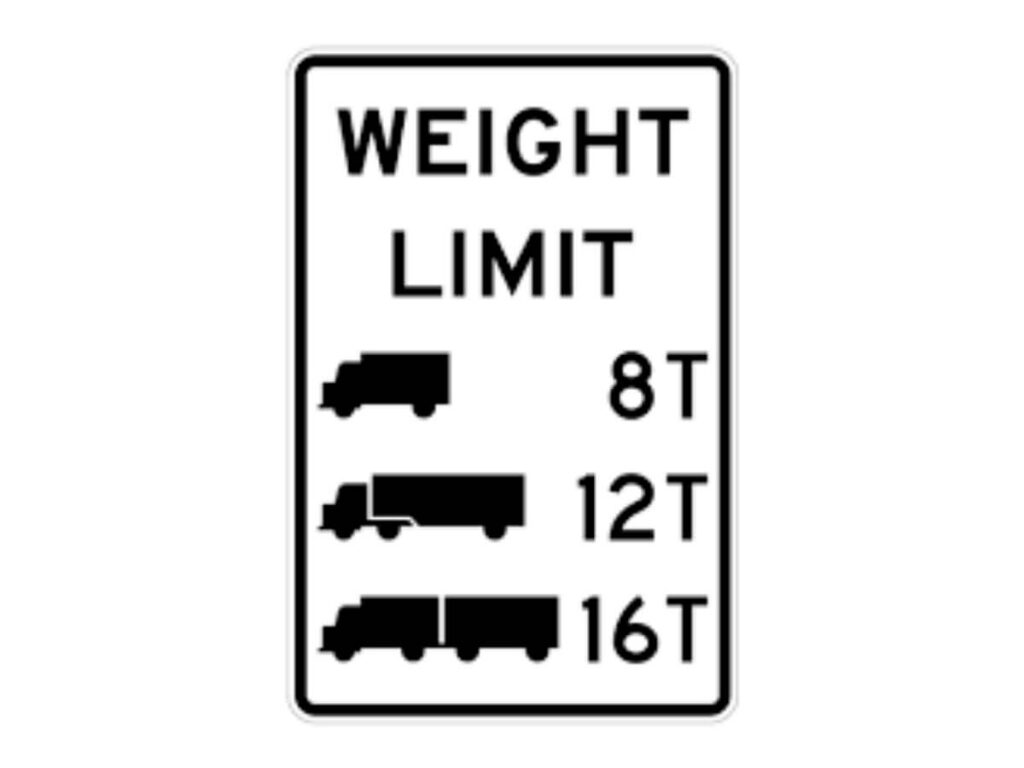
5. Operational Flexibility
I once consulted for a logistics company running tight schedules across multiple drop zones. Their trucks were reliable, but when one went down, everything stalled. Drivers sat idle. Deadlines slipped.
Clients called. When they shifted to a trailer-based system, their downtime dropped almost overnight. One tractor, many trailers, problem solved.
If your business depends on timing, volume, or rapid deployment, operational flexibility isn’t nice-to-have; it’s survival. And this is where trucks and trailers serve two very different functions.
Swap & Go Capability
- Trailers: Trailers give youmodular control. While one is being loaded at the warehouse, another can be on the road. Drivers can pick up pre-loaded trailers and keep moving. This allows for:
- Faster turnaround times
- Reduced idle labor
- Better route optimization
- Increased asset utilization
- Trucks: Trucks operate as a single unit. When it stops, the whole system stops, you can’t decouple the load from the vehicle. Loading and unloading times stretch out your schedule and shrink your fleet availability.
Driver Availability & Licensing
- Trucks: Most commercial trucks require a CDL (Class A or B), and those licenses can be tough to find depending on your region. You also need to match drivers with specific vehicles, not always easy when resources are tight.
- Trailers (With Tractors): Still require a CDL, but offer better flexibility. You can assign any licensed driver to any tractor, and swap trailers as needed. This makes it easier to:
- Rotate drivers across shifts
- Adjust to sudden absences
- Respond to schedule changes
Downtime Management
- Truck-Only Fleets: When a truck goes down, it takes the cargo and delivery window with it. You’re stuck until repairs are done or a replacement is scrambled, and that’s assuming you even have a backup ready.
- Trailer-Based Fleets: Trailers can be decoupled from tractor issues. If the tractor breaks down, hook it to another and roll. If the trailer needs maintenance, move the tractor to another load. This limits operational disruption and gives you:
- Better uptime across your fleet
- Less pressure on maintenance teams
- More control over how and when repairs happen
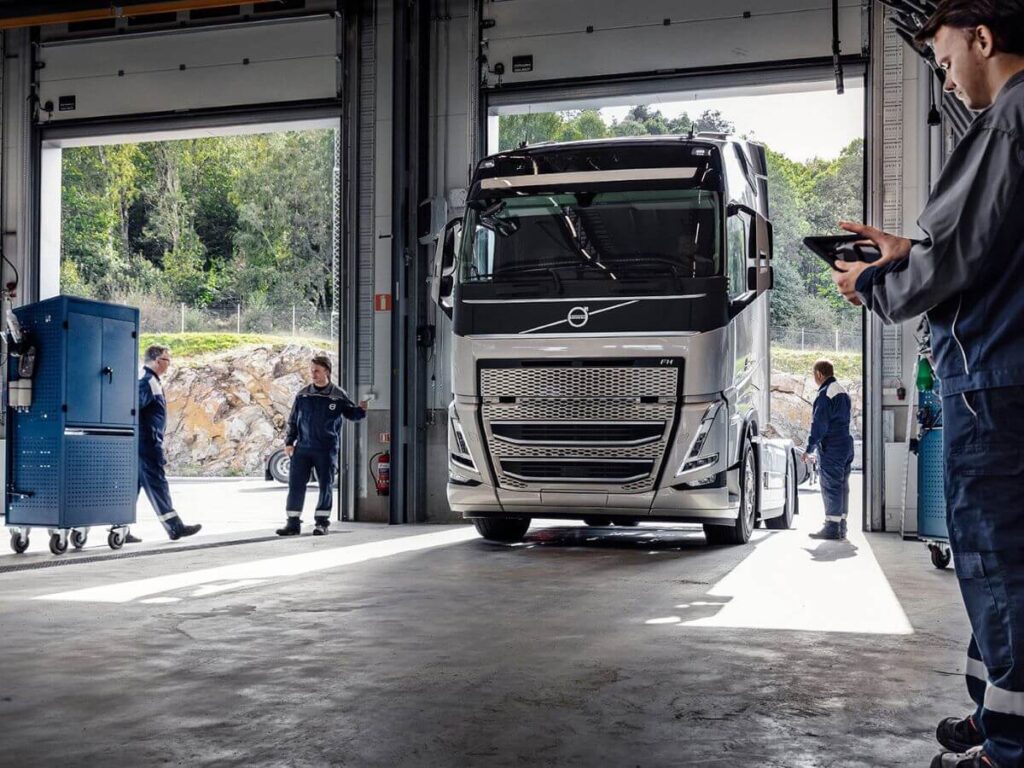
6. Maintenance and Lifecycle
One of my early clients bought a fleet of trucks, thinking it would be simpler to manage. What they didn’t expect was the constant repair rotation. Within a year, their maintenance costs had ballooned, and their fleet availability dropped.
They learned a hard truth: not all downtime looks the same on paper.
If you’re planning for the long haul, it’s not just about which machine runs best today, it’s about which one stays on the road tomorrow, next year, and 5 years from now.
Let’s take a closer look:
Maintenance Needs
- Trucks: Trucks are more complex machines. You’re dealing with:
- Engines and transmissions
- Emissions and DEF systems
- Electrical diagnostics
- Brake and suspension systems
- Telematics and onboard tech
The upside? More control and onboard power. The downside? More things that can go wrong. Repairs can be expensive and time-consuming, especially if you’re running older models.
- Trailers: No engine means less complexity. Maintenance typically involves:
- Tires and wheels
- Brake systems and air lines
- Lighting and electrical connections
- Frame, axles, and suspension
Repairs are generally simpler and cheaper, and most can be scheduled without disrupting the tractor unit’s availability.
Asset Lifespan
- Trucks: With good maintenance, expect 5–8 years of heavy commercial use before reliability starts to decline or replacement is needed. High-mileage operations may cycle out trucks sooner.
- Trailers: Trailers from Rhinotrail often last 10–15 years or more, especially with consistent preventive maintenance. Their longer lifespan is one of the biggest arguments in favor of trailer-heavy fleets.
Long-Term Cost Implications
- Labor & Service Frequency: Trucks need more frequent, skilled servicing—often in-shop. Trailer maintenance is usually more predictable and less labor-intensive.
- Parts Availability & Cost: Engine parts, sensors, and systems for trucks are often costlier and brand-specific. Trailer parts are usually standardized and readily available, even across different trailer types.
- Downtime & Productivity Loss: A truck in the shop = 100% non-functional. A trailer in the shop = just unhook and keep the tractor moving.
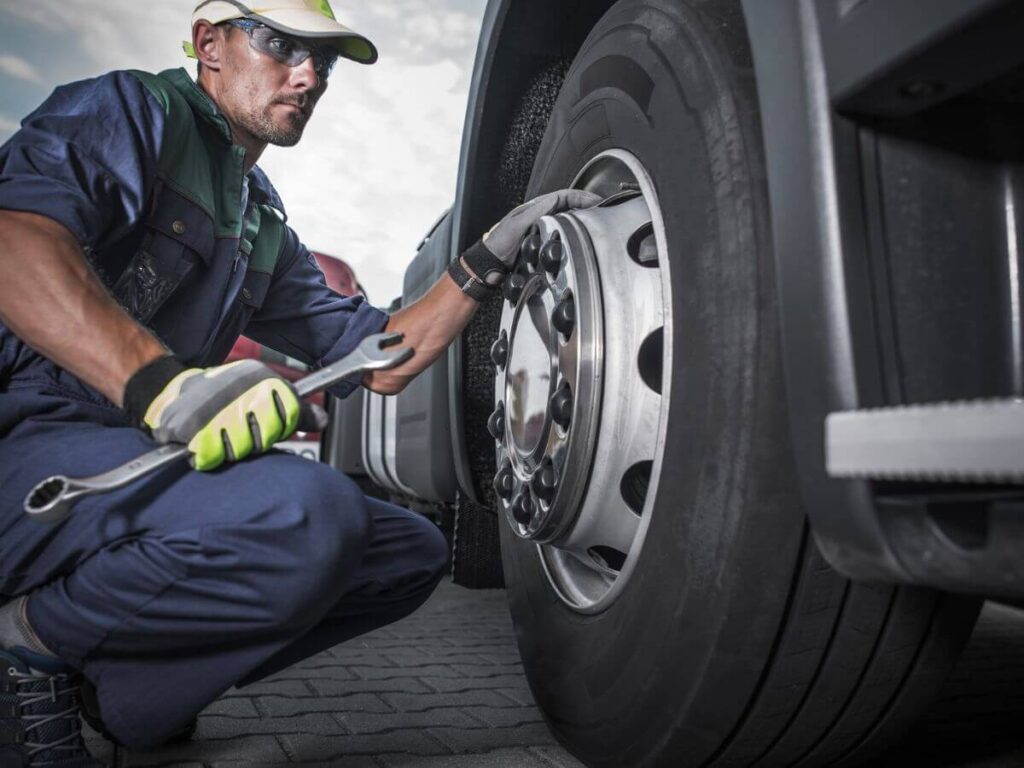
7. Industry-Specific Recommendations
Over the years, I’ve worked with companies across construction, mining, logistics, agriculture, and even energy sectors. Every one of them asked the same question: “Truck or trailer, what’s right for us?”
The answer? It depends on what you haul, how far you haul it, and how often your operations change.
Let’s break it down by industry:
Construction & Heavy Equipment
You’re moving materials, tools, machinery, and working across unstable terrain. You need durability and load versatility.
Best Fit:
- Lowboys, flatbeds, and drop decks
- Heavy-duty trailers pulled by tractor units
- Trailers give you the flexibility to haul oversized or irregular loads legally
Why:
- Can detach trailers on job sites
- Easier to scale as project demands grow
- Better weight distribution options for equipment hauling
Mining & Extractives
You’re operating in remote, rugged environments, often with massive equipment and raw materials.
Best Fit:
- Specialized trailers with high-capacity axles
- Modular trailer systems for adapting to oversized or off-road loads
Why:
- Trailers handle extreme weight better
- Trucks alone wear down fast under those conditions
- Faster repair swaps = less downtime in the field
Logistics & Transportation
You’re in the business of movement, speed, volume, and uptime matter more than anything.
Best Fit:
- Trailer-based fleet (dry vans, reefers, flatbeds) + rotating tractors
Why:
- Trailers keep goods moving even if a tractor breaks down
- Better fuel economy per ton-mile
- Drop-and-hook operations increase delivery volume and speed
Agriculture & Food Distribution
You’re dealing with seasonal volume, perishables, or bulk product like grain or livestock.
Best Fit:
- Refrigerated trailers, grain trailers, or livestock trailers
- Box trucks for short-range, farm-to-store deliveries
Why:
- Trailers can sit on-site for easy loading
- Flexibility to move goods during peak harvest
- Better suited for regional hauls with changing demands
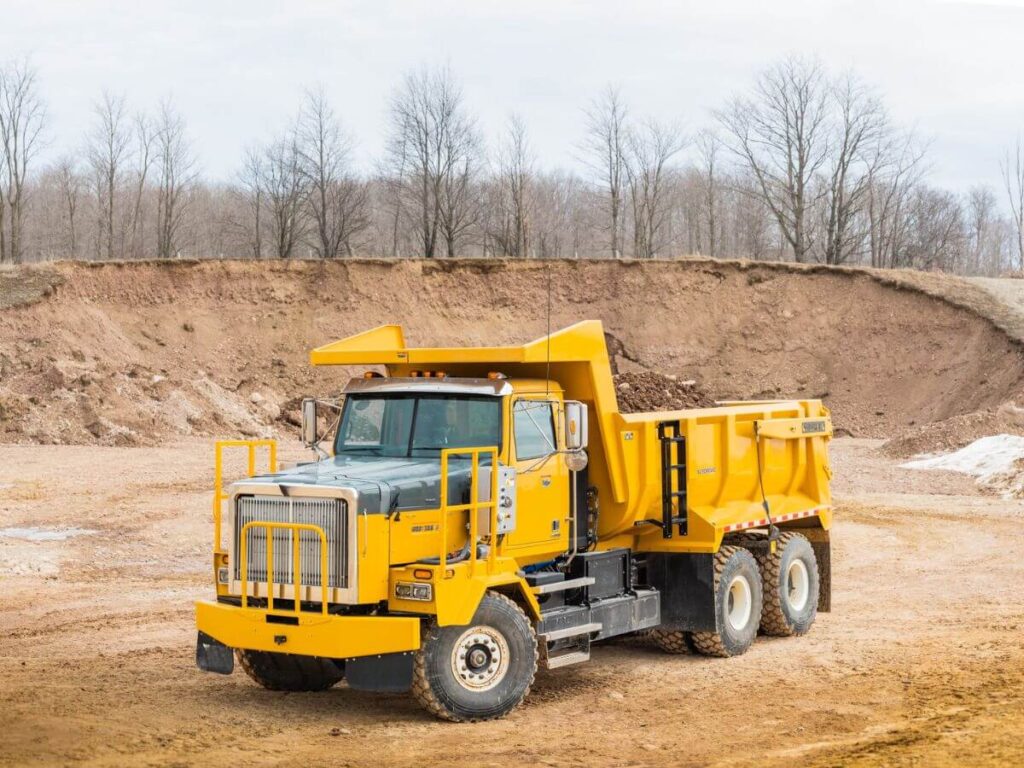
8. How to Choose Between Truck and Trailer
Let’s be honest, this decision isn’t just about equipment. It’s about how you move your business forward.
I’ve seen companies overbuy, underplan, and pay for it in downtime, stress, and missed growth. But the ones who take a step back, evaluate their needs, costs, and operations, get it right the first time.
Here’s how you can do the same.
Ask yourself these questions before pulling the trigger on your next fleet investment:
- Budget: Can you afford to buy multiple trucks? Or would trailers give you more coverage at a lower upfront cost?
- Cargo Type & Weight: Are you moving raw materials, finished goods, perishables, or heavy equipment? Different setups handle different loads better, trailers often win in versatility.
- Distance & Terrain: Short urban routes vs. long-haul or off-road transport? Trucks handle city agility. Trailers dominate on heavy, rural, or long-distance runs.
- Driver Availability: Do you have access to licensed drivers for complex rigs? Trailer-based systems allow you to rotate tractors and drivers more efficiently.
- Maintenance Capability: Can your team maintain complex engine systems, or would a simpler trailer-focused fleet ease the load?
- Growth Plans: Are you scaling operations in the next 1–3 years? Trailers offer faster expansion, buy more trailers, not more engines.
Conclusion
That day in the yard, staring at the truck quote, I didn’t know I needed a trailer. Now I do.
This guide gave you the breakdown: trucks for speed and simplicity, trailers for flexibility and scale. You know what to choose, why it matters, and how it impacts your future.
Now’s the time to act. Don’t let indecision stall your growth.
What setup will move your business forward next quarter?
Let’s talk it through. Contact us today—I’d be happy to help you avoid the mistakes I made.


